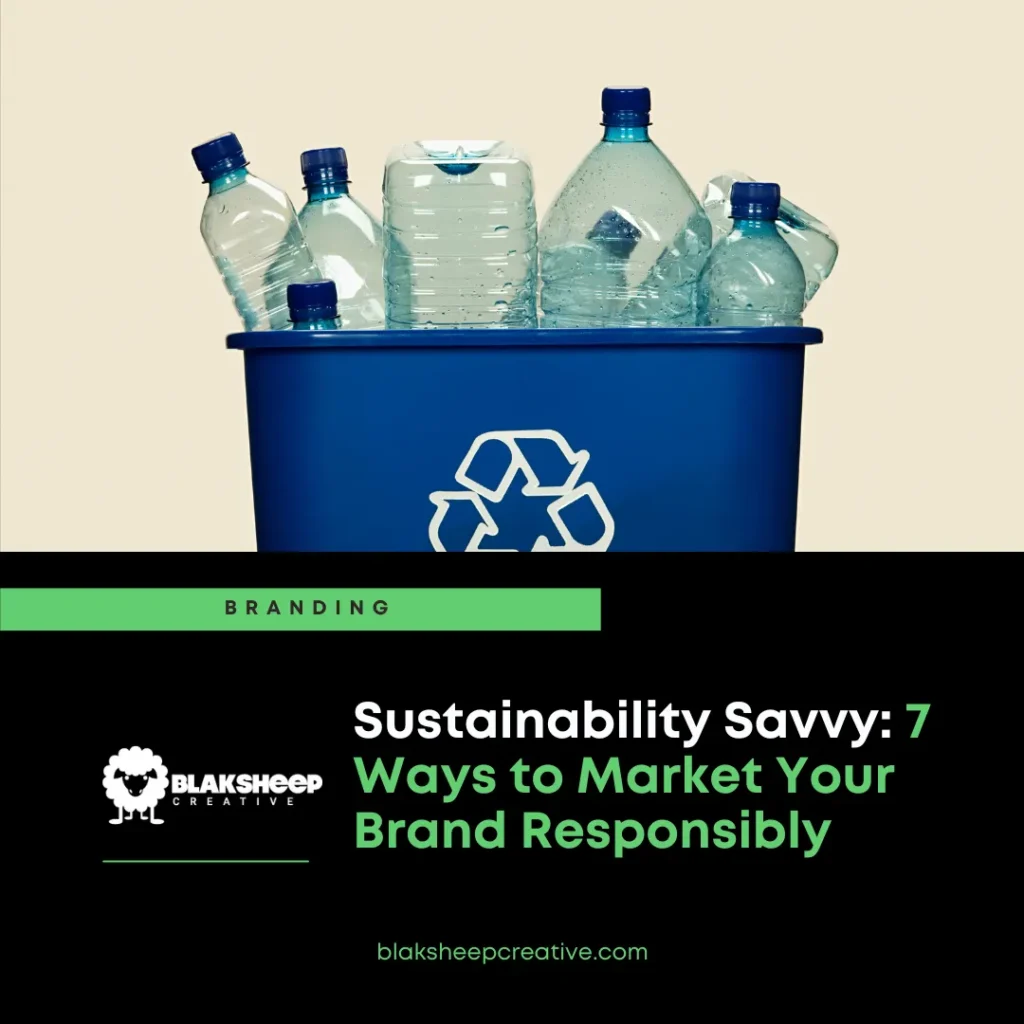The call for businesses to embrace sustainability is louder than ever. As marketing professionals, you can influence not just the purchases made by consumers but also the impact of those purchases on the planet. In a world increasingly concerned with environmental issues, aligning your brand with eco-friendly practices isn’t just a moral imperative – it’s a brilliant marketing move.
To help you steer your marketing strategy towards sustainability, here are seven ways to infuse your brand’s persona with eco-consciousness. Let’s dive into this listicle to discover how each action can save the planet and boost your brand image.
1. Incorporate Sustainable Packaging
Use Biodegradable Materials
The golden rule of sustainable packaging is to use materials that are kind to the Earth. Switch out conventional plastics for biodegradable alternatives like cornstarch-based packaging that decompose naturally, leaving no harmful environmental residue.
Reduce Plastic Waste
An immediate step towards sustainability is to reduce the use of plastic. Consider innovative materials such as mycelium, a biodegradable mushroom-based packaging material. These bio-composite solutions offer a stronghold on your product while protecting the planet from plastic pollution.
Opt for Recyclable Packaging
Prominently display recyclable logos on your product packages to encourage customers to dispose of them responsibly. This communicates your brand’s eco-commitment and empowers consumers to contribute to the circular economy.
2. Promote Energy Efficiency
Switch to Renewable Energy Sources
If your marketing efforts boast a green message, your operations should back it up. Transitioning to renewable energy like solar or wind power reduces your carbon footprint and sets an admirable example for others in your industry.
Encourage Energy-Saving Practices
A little goes a long way: turning off lights, reducing standby power, and using energy-efficient appliances can significantly impact. Inspire your team with energy-saving competitions or by displaying your office’s energy usage stats to highlight the contribution to a lower-carbon world.
Highlight Energy-Efficient Products/Services
If your brand offers any products or services that are energy-efficient, shout it from the rooftops. Ensure these solutions feature in your marketing materials and campaigns, emphasizing the positive environmental benefits.
3. Embrace Sustainable Supply Chains
Source from Eco-Conscious Suppliers
The fabric of sustainability is woven from end to end in your supply chain. Work only with suppliers who share your commitment to eco-friendly practices, ensuring that the entire process of delivering your product is as green as possible.
Support Fair Trade and Ethical Practices
Look for certifications like Fair Trade or Rainforest Alliance, which ensure your products are produced in an environmentally and socially responsible way. This supports a trustworthy supply chain, underlining your brand’s sustainability pledge.
Reduce Carbon Footprint in the Supply Chain
Analyze your supply chain for inefficiencies and opt for local sourcing to minimize transportation emissions. Every eco-step your suppliers take is a step in the right direction for your brand.
4. Engage in Cause Marketing
Support Environmental Organizations
Align your brand with non-profits dedicated to environmental causes. This not only offers support to worthy organizations but connects your brand with a specific environmental mission, giving your customers a reason to be proud of their association with your brand.
Partner with Eco-Friendly Initiatives
Forge partnerships with initiatives working towards sustainability, such as tree-planting programs or ocean cleanup initiatives. Highlight these partnerships across your marketing channels to amplify the positive impact of your collective efforts.
Donate a Portion of Profits to Sustainability Causes
Make a financial commitment to ecological causes by earmarking a portion of your profits to support sustainability efforts. This gives your customers a concrete reason to support your brand beyond your products or services.
5. Educate and Raise Awareness
Create Informative Content about Sustainable Practices
As a marketer, your content is your megaphone. Use it to educate your audience about sustainable living and consumption, steering the conversation towards a more eco-friendly future.
Share Tips for Eco-Friendly Living
Empower your audience with actionable tips and advice on how to lead a sustainable lifestyle. This builds a community around your brand and contributes to the more significant movement for a greener world.
Host Webinars or Workshops on Sustainability
Bring experts and enthusiasts together to discuss sustainable living and business practices. These interactive sessions can be a game-changer in spreading awareness and building your brand’s authority in the sustainability space.
6. Advocate for Recycling and Waste Reduction
Implement Recycling Programs in the Workplace
Start at home by implementing robust recycling programs in your workplace. Ensure that paper, plastics, and electronics are recycled correctly, and share your recycling stats as part of your sustainability report.
Encourage Customers to Recycle
Include clear instructions on your product packaging or provide information on recycling the product after use. The easier you make it for customers to recycle, the more likely they will participate in the sustainability effort.
Minimize Packaging Waste
Re-evaluate your packaging strategy to reduce waste. This may involve using less packaging, eliminating single-use plastics, or finding innovative ways to package products for multiple uses.
7. Be Transparent and Authentic
Communicate Your Sustainability Efforts Honestly
Transparency is vital to building trust. Be transparent about your sustainability efforts, progress, and any challenges you face in achieving your eco-goals. Honest communication builds a strong relationship with conscious consumers.
Avoid Greenwashing
Greenwashing – making false or misleading environmental statements to attract customers – is a massive turn-off for the modern shopper. Ensure all your green marketing claims can be substantiated and align with your actual practices.
Share Your Brand’s Sustainability Journey
Tell the story of your sustainability journey. Share the milestones you’ve achieved, the lessons you’ve learned, and plans for the future. This engages your audience and inspires other businesses to follow suit.
Conclusion
Implementing sustainable marketing practices is about being a responsible brand and creating a better world for future generations. The steps you take now can result in a positive change for the environment and a more substantial, more sustainable brand reputation. As you’ve seen from this listicle, integrating sustainability into your marketing is a multifaceted approach that requires creativity, commitment, and ongoing effort. Embrace the journey, and let’s take marketing in a greener direction.














































